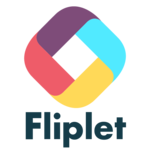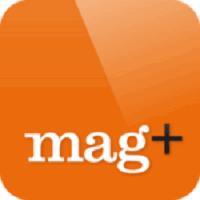Description

Fliplet

Frontegg

Mag+ Application Development
Comprehensive Overview: Fliplet vs Frontegg vs Mag+ Application Development
Fliplet
a) Primary Functions and Target Markets:
Fliplet is a no-code app development platform that empowers businesses to create mobile and web applications without the need for in-depth programming skills. It focuses on simplifying app creation for a variety of enterprise-level applications, such as employee engagement apps, event apps, and more. The target market primarily consists of organizations across various sectors like corporate businesses, legal firms, and educational institutions that need tailored apps for internal and client-facing activities.
b) Market Share and User Base:
Fliplet possesses a niche market presence, especially among companies looking for rapid deployment of mobile solutions without the extensive lead times associated with traditional software development. While it may not occupy a large segment of the overall app development market, its user base is steadily growing, with more enterprises recognizing the value of no-code platforms in accelerating digital transformation.
c) Key Differentiating Factors:
- No-Code Platform: Allows users without coding experience to create complex applications.
- Flexibility and Scalability: Offers customizable templates and widget libraries, making it easy to tailor apps to specific business needs.
- Integration Capabilities: Provides seamless integration with various enterprise systems like Microsoft Office and Google Workspace.
- Focus on Corporate Solutions: Primarily serves business-focused applications, which sets it apart from generalized app development platforms.
Frontegg
a) Primary Functions and Target Markets:
Frontegg offers a platform for implementing authentication and user management into applications, focusing particularly on Software-as-a-Service (SaaS) applications. Its main functionalities include providing secure, pre-built authentication flows, multi-factor authentication, user management, and a comprehensive dashboard for user insights. The primary target market includes SaaS companies, especially startups and mid-sized businesses that require robust authentication solutions without diverting resources from their core development.
b) Market Share and User Base:
Frontegg caters to a specialized market sector within the broader space of SaaS development. Its market share is not vast but significant in the identity and access management (IAM) sector due to its tailored services that meet developers' needs efficiently. Its user base comprises many developers and SaaS providers seeking to streamline authentication processes.
c) Key Differentiating Factors:
- Developer-Centric: Designed specifically for SaaS applications, focusing heavily on developer usability and flexibility.
- Comprehensive Authentication Suite: Offers a wide range of authentication solutions, including social logins and advanced security protocols.
- Ease of Integration: Rapid integration capabilities with existing SaaS applications, reducing the time to implement secure user management.
- Focused Vertical: Specialization in authentication for SaaS solutions differentiates it from all-encompassing app development platforms.
Mag+
a) Primary Functions and Target Markets:
Mag+ is a platform for creating digital magazine content and apps, primarily utilized in publishing and media. It enables publishers to design and distribute interactive digital publications for tablets and smartphones. Mag+ targets media companies, marketing agencies, and brands that require rich and engaging digital content to connect with audiences in innovative ways.
b) Market Share and User Base:
Mag+ is a recognized name in the niche sector of digital publishing platforms, particularly appealing to traditional publishing houses transitioning to digital formats. Its market share is notable among entities producing digital magazines and interactive catalogs. The user base includes a mix of media publishers, marketers, and brand managers primarily focused on content richness and user engagement.
c) Key Differentiating Factors:
- Focus on Digital Publishing: Specializes in transforming content for digital magazine formats, offering tools specifically tailored for these needs.
- Rich Interactive Features: Provides tools for creating interactive elements within publications, such as videos, slideshows, and dynamic design layouts.
- Publishing Flexibility: Allows for easy updates and seamless publishing across multiple formats and devices.
- Content-Driven: Unlike other development platforms, Mag+ is content-focused, making it ideal for media-rich digital experiences.
In summary, Fliplet, Frontegg, and Mag+ serve distinct yet sometimes overlapping markets, each with unique platforms emphasizing specific app development aspects: Fliplet with user-friendly corporate app creation, Frontegg with secure user management for SaaS solutions, and Mag+ with rich digital publishing capabilities. Their success and market share largely depend on the unique demands of their target markets.
Contact Info

Year founded :
2009
+44 20 3582 9720
Not Available
United Kingdom
http://www.linkedin.com/company/flipletapps

Year founded :
2019
+1 234-567-8992
Not Available
United States
http://www.linkedin.com/company/frontegg

Year founded :
Not Available
Not Available
Not Available
Not Available
Not Available
Feature Similarity Breakdown: Fliplet, Frontegg, Mag+ Application Development
When comparing Fliplet, Frontegg, and Mag+ in the realm of application development, there are several dimensions through which we can evaluate their features, user interfaces, and unique offerings. Here's a breakdown:
a) Core Features in Common
-
No-code/Low-code Development:
- All three platforms provide no-code or low-code environments, enabling users to create applications without extensive coding knowledge.
-
Drag-and-drop Interface:
- Each platform offers a user-friendly, drag-and-drop interface for designing application components, which simplifies the app creation process.
-
Cross-platform Deployment:
- These tools allow for the deployment of applications across multiple platforms, including iOS, Android, and web.
-
Integration Capabilities:
- They support integration with various third-party services and APIs, enhancing the functionality of the applications developed.
-
User Management and Authentication:
- Basic user management and authentication features are common, although the depth and complexity may vary.
b) User Interface Comparison
-
Fliplet:
- Focuses on a simple, intuitive UI, which makes it very approachable for non-technical users. The design is straightforward, facilitating easy navigation and application creation without overwhelming users with too many options.
-
Frontegg:
- Offers a more developer-centric interface compared to Fliplet, emphasizing features like customization and backend integrations. It balances simplicity with depth, providing tools for users who may want more control over their user management processes.
-
Mag+:
- Known for its visually appealing design interface, appealing especially to users aiming to develop multimedia-rich applications. It is particularly strong in offering tools tailored for content-heavy applications, such as magazines or interactive publications.
c) Unique Features of Each Product
-
Fliplet:
- Tailored Solutions: Provides industry-specific templates and solutions, especially for sectors like legal and corporate training.
- Offline Access: Robust support for offline functionality, ensuring apps are usable without an internet connection.
-
Frontegg:
- Advanced Authentication: Offers sophisticated authentication and user management solutions, including multi-factor authentication, which may be more advanced than the other platforms.
- Developer Tools: Provides rich tools and SDKs for customization and integration, appealing to those with a bit more technical capacity and requirements.
-
Mag+:
- Rich Media and Content Support: Designed with a strong focus on creating and publishing interactive content applications, making it ideal for digital publishing.
- Unique Design Features: Offers specific design tools optimized for creating visually driven and content-heavy applications.
Each platform is tailored to different use cases and user needs, so the choice between them would ideally be guided by the specific type of app development project you are undertaking and the technical expertise available to you.
Features

Publishing and Deployment
Collaboration Tools
App Development
Integrations

Customer Engagement
Subscription Management
User Management
Authentication

User Interface Design
Content Management
Performance Optimization
Best Fit Use Cases: Fliplet, Frontegg, Mag+ Application Development
When considering the best fit for Fliplet, Frontegg, and Mag+ Application Development, it's important to understand the unique strengths and target use cases of each platform. Here's a breakdown of their best fit scenarios:
a) Fliplet
Best Fit Use Cases:
-
Types of Businesses or Projects: Fliplet is an excellent choice for businesses seeking to create custom applications without extensive coding. It's particularly well-suited for:
- Large organizations that require internal tools or client-facing apps.
- Businesses in need of quick prototyping and deployment of mobile applications.
- Companies looking for solutions in enterprise resource planning, training, or event management.
-
Specific Scenarios:
- Corporations that need to rapidly deploy apps for internal processes such as HR, sales, and operations.
- Organizations that prioritize ease of use with drag-and-drop interfaces for non-technical teams.
-
Industry Verticals and Company Sizes:
- Serves a wide range of industries including healthcare, legal, and education.
- Tailored towards medium to large enterprises with a focus on scalability and customization.
b) Frontegg
Best Fit Use Cases:
-
Types of Businesses or Projects: Frontegg is ideal for SaaS companies that need to integrate complex user management and authentication features without developing them from scratch.
- Startups and tech companies that require sophisticated user infrastructure.
- Projects focused on ensuring secure and seamless user onboarding and management.
-
Specific Scenarios:
- SaaS products that require multi-tenancy support, SSO, SAML, and other advanced authentication features.
- Businesses with a heavy emphasis on user-centric features and personalization.
-
Industry Verticals and Company Sizes:
- Particularly beneficial for tech companies in industries like cybersecurity, fintech, and IoT.
- Well-suited for startups to mid-sized tech firms focusing on rapid development and time-to-market.
c) Mag+ Application Development
Best Fit Use Cases:
-
Types of Businesses or Projects: Mag+ is tailored for creating rich digital content apps particularly in the publishing and media industries.
- Companies looking to develop dynamic, interactive magazines or brochures.
- Projects centered around delivering content-driven mobile experiences.
-
Specific Scenarios:
- Publishers and media houses wanting to transition from print to digital media.
- Marketing teams creating interactive catalogs or product guides.
-
Industry Verticals and Company Sizes:
- Specializes in publishing, media, advertising, and marketing sectors.
- Suitable for small to medium enterprises focused on content-driven applications.
d) Catering to Different Industry Verticals or Company Sizes
- Fliplet provides versatility across various industries with a focus on reducing development time for enterprise apps. Its scalability suits larger organizations that require complex app ecosystems.
- Frontegg focuses heavily on tech-centric industries, offering modular features that simplify user management for SaaS products particularly beneficial to startups or medium-sized tech companies.
- Mag+ is deeply rooted in content creation sectors, providing specialized tools for media-rich application development, catering mainly to publishers and creative teams, generally in the SME range.
Overall, each of these platforms offers distinctive advantages depending on the business needs, ranging from enterprise app creation and user management to digital content publishing.
Pricing

Pricing Not Available

Pricing Not Available

Pricing Not Available
Metrics History
Metrics History
Comparing teamSize across companies
Conclusion & Final Verdict: Fliplet vs Frontegg vs Mag+ Application Development
To provide a comprehensive conclusion and final verdict on Fliplet, Frontegg, and Mag+ Application Development, let's break down the evaluation and address each point:
a) Best Overall Value
Fliplet offers the best overall value for businesses looking for a balance between ease of use, customization, and a comprehensive feature set. It is especially well-suited for organizations in need of versatile app-building tools that cater to both technical and non-technical users. Its cost-effectiveness and wide range of templates make it an ideal choice for teams that need to develop various types of applications quickly and efficiently.
b) Pros and Cons
Fliplet:
- Pros:
- Intuitive interface with drag-and-drop functionality.
- Extensive library of pre-built templates and components.
- Offers flexibility for both standard and custom app features.
- Support for both iOS and Android platforms.
- Cons:
- May not offer as deep customization options for developers seeking intricate capabilities.
- Performance can vary depending on complexity and number of third-party integrations.
Frontegg:
- Pros:
- Excellent for applications that require robust user management and authentication features.
- High scalability and security features fit well with SaaS applications.
- Comprehensive API support for advanced customization.
- Cons:
- Can be overly complex for non-technical users.
- More expensive for smaller teams or startups focusing primarily on basic app functionality.
Mag+ Application Development:
- Pros:
- Strong focus on digital publishing, making it ideal for media-rich content applications.
- Easy integration with digital content tools and workflows.
- Supports advanced interactive media features.
- Cons:
- Limited scope outside of the publishing industry.
- Can be less versatile for applications not centered around digital publishing.
c) Recommendations
-
Deciding Factors:
- Choose Fliplet if your team needs a flexible solution that balances ease of use and feature depth across various app types. It's well-suited for organizations that need rapid deployment with the potential for customization.
- Opt for Frontegg if your primary concern is advanced user management, security, and scalability in a SaaS environment. It's most appropriate for tech-heavy companies that have the means to handle its complexity and cost.
- Select Mag+ Application Development if your primary focus is on creating interactive digital publishing content. It's tailor-made for businesses in the publishing sector that require advanced media capabilities.
-
Specific Recommendations:
- Evaluate the technical expertise of your team. Fliplet is preferable for teams with limited coding skills, Frontegg requires technical know-how for complex implementations, and Mag+ is specialized for content creators.
- Consider your main app objectives. If app security and user management are crucial, Frontegg should be prioritized. For creativity and publishing, Mag+ stands out.
- Budget considerations are important. Fliplet often provides cost-effective solutions without a steep learning curve, making it a practical choice for constrained budgets.
In summary, the choice between Fliplet, Frontegg, and Mag+ Application Development largely depends on the specific needs of your business, the expertise of your team, and your industry sector. Each platform has its strengths that cater to different priorities and application types.